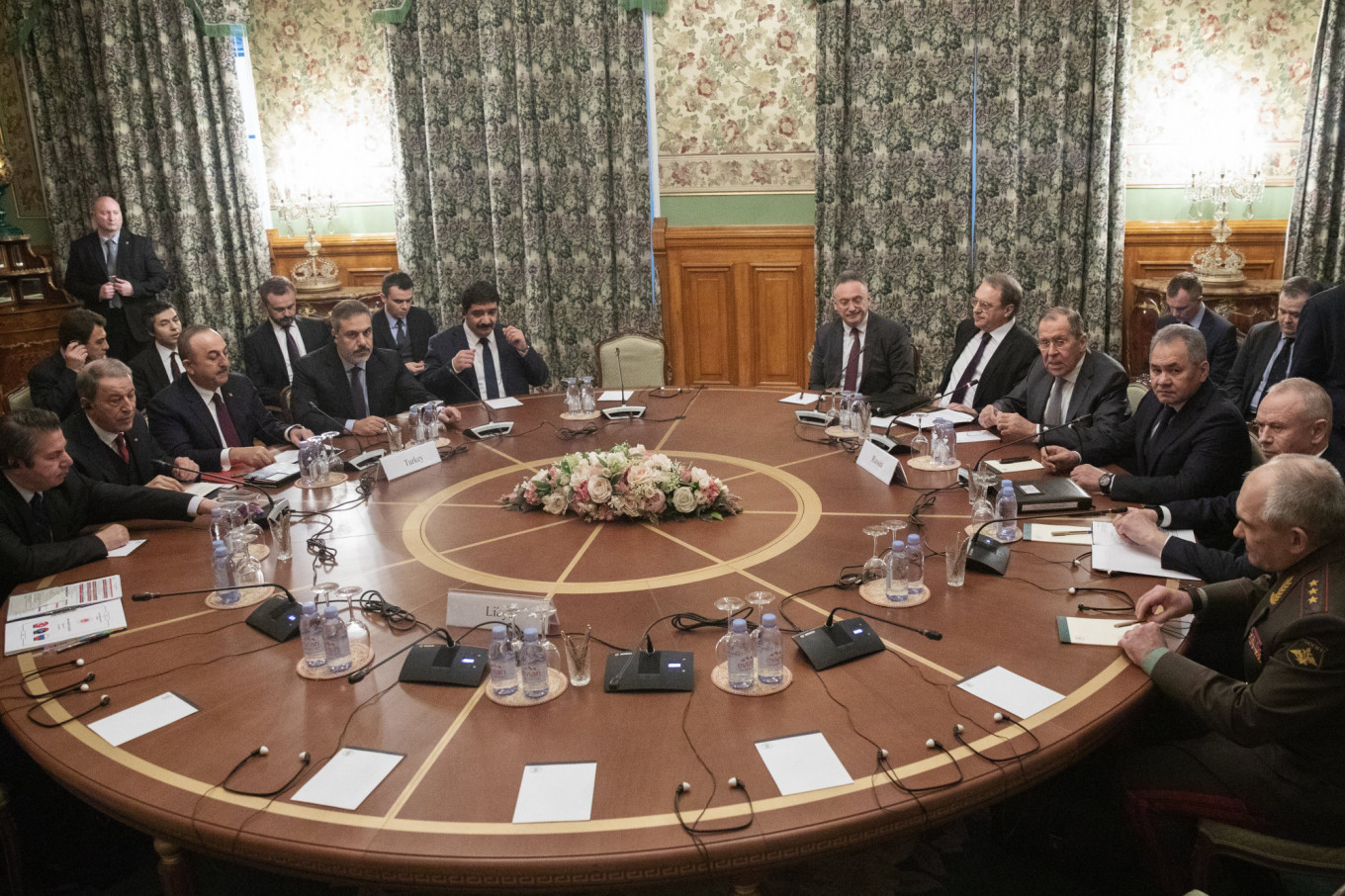
Libya’s warring leaders made some progress at indirect peace talks in Moscow on Monday but failed to agree on an unconditional and open-ended ceasefire.
In talks that lasted about eight hours, mediators Russia and Turkey urged the rivals to sign a binding truce to end a nine-month-old war and pave the way for a settlement that would stabilize the North African country.
Libya peace talks in Moscow fall short of ceasefire deal
Fayez al-Serraj, who heads Libya’s Tripoli-based internationally recognized government, signed the ceasefire agreement, Russian Foreign Minister Sergei Lavrov said.
But Turkish Foreign Minister Mevlut Cavusoglu said Khalifa Haftar, commander of the eastern-based Libyan National Army (LNA) faction that has been trying to take the capital Tripoli, had asked for more time to consider the ceasefire.
“Today we can report that some progress was made,” Lavrov told reporters at the elegant 19th century Moscow mansion where the talks were held.
Cavusoglu told reporters Haftar wanted to have until Tuesday morning to make up his mind.
The Russo-Turkish push, which involved laborious indirect contacts between the two Libyan delegations, is the latest attempt to end chaos that has engulfed the oil-producing country since Muammar Gaddafi was toppled in 2011.
Russia‘s TASS news agency reported that Serraj had refused to engage in direct talks with Haftar, forcing Russian and Turkish diplomats to act as go-betweens.
The two men last met in Abu Dhabi in February last year before talks broke down over a power-sharing deal and Haftar moved his troops on Tripoli in April, expanding his control beyond the east and south.
Speaking alongside Italian Prime Minister Giuseppe Conte in Ankara, Turkish President Tayyip Erdogan said his country was working to ensure that a ceasefire in Libya would become permanent.
He said he hoped the Moscow talks would form the basis of discussions at a summit in Berlin on Sunday, which he said he would attend with Conte and Russian President Vladimir Putin. German Chancellor Angela Merkel said on Saturday she planned to host such a summit after holding talks with Putin.
Quiet in Tripoli
Turkey backs Haftar’s rival, Serraj, while Russian military contractors have been deployed alongside Haftar’s LNA forces, which are also backed by the United Arab Emirates, Egypt and Jordan.
The Tripoli war has wrecked Libya’s economy and risks disrupting oil production and triggering flows of African migrants trying to reach Europe by boats with the help of smugglers exploiting the chaos.
The Moscow talks come after a ceasefire, initiated by Turkey and Russia, saw a lull in heavy fighting and air strikes on Sunday, though both factions accused each other of violating that truce as skirmishes continued around Tripoli.
Reuters journalists in Tripoli said it was quiet in the centre on Monday and that they could hear no clashes or shelling.
Mitiga airport, the capital’s only functioning airport, had resumed operations, a Reuters witness said. Flights were suspended earlier this month due to rockets falling nearby.
Haftar’s troops have not been able to breach Tripoli’s defences but have in recent weeks made some small progress with help from Russian mercenaries, residents say. That has pushed Turkey, which has business interests in the country, to deploy soldiers to Libya to help the Tripoli government.
Russia and Turkey have turned into important players in Libya, joining Arab countries such as Egypt or the UAE which have filled a void left by Western powers showing little interest in the OPEC producer since 2011.
